Occasional Sex & Censorship blogger, psychologist David Ley, writes in Psychology Today on pornography and science.
Disagreeing with one’s hero is hard but important.
Source: We Must Rely on Good Science in Porn Debate | Psychology Today
Occasional Sex & Censorship blogger, psychologist David Ley, writes in Psychology Today on pornography and science.
Disagreeing with one’s hero is hard but important.
Source: We Must Rely on Good Science in Porn Debate | Psychology Today
Here’s an excellent article by Samantha Rea at VICE on sex workers’ experience of medical care.
If you thought getting healthcare for your desk job was bad, try being a woman in the sex industry. We spoke to escorts, porn actors, and former sex workers who ran into devastating prejudice when getting trying to get something as simple as a medical che
Source: ‘I Was Left Like a Freak in the Corner’: Visiting the Doctor as a Sex Worker | Broadly
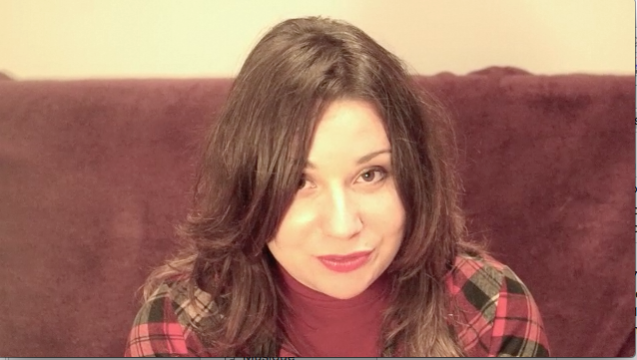
 A couple of years ago, as I was launching this campaign, I was contacted by Vanessa Pellegrin, who was working on a documentary called The Trouble With the F Word: a film examining why feminism has become so unpopular. She has now launched a Kickstarter campaign to help complete the film.
A couple of years ago, as I was launching this campaign, I was contacted by Vanessa Pellegrin, who was working on a documentary called The Trouble With the F Word: a film examining why feminism has become so unpopular. She has now launched a Kickstarter campaign to help complete the film.
It’s an interesting question, and one that also partly drove me to write my own book, Porn Panic!
The film will take a balanced look at feminism and anti-feminism (whatever those things may be – sometimes, feminism itself appears to be so broad and self-contradictory that it could be labelled anti-feminism!)
In the short video below, Vanessa gives five reasons to help fund her project. Have a look, and check out her Kickstarter page if you’d like to be involved.
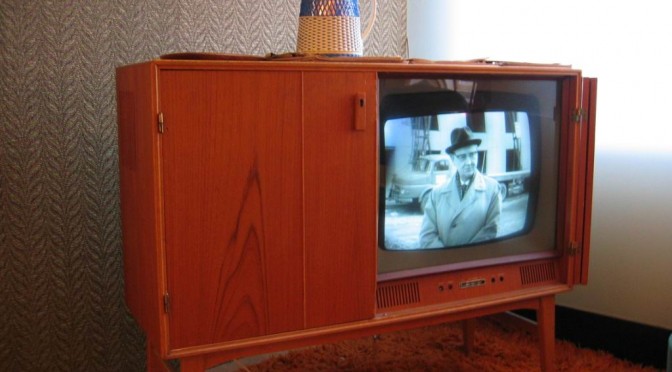
The government plans to close the “TV-Like” loophole which a handful of porn services have used to stay in business.
For years, the British censorship state has become infuriated with the way digital communications have entirely sidelined their tight controls over film, TV and video content. The TV regulator Ofcom and the BBFC, which censors DVD, had no control over content on the Internet, whether or not it was published in the UK.
In order to regain some control, the regulators seized on the Audiovisual Media Services Directive, a framework from the EU designed to extend broadcast TV regulation to online streaming services. The directive was written to apply only to “TV-Like On Demand Programme Services”, and was expected to apply to the BBC’s iPlayer and similar services.
However, the British censors saw their opportunity, and set up ATVOD in 2010 in order to implement the directive. While most EU countries followed the spirit of the directive, and set up minimal regulatory regimes, ATVOD instead drafted its own onerous rules and demanded large annual payments (£2,900 in the first year) from services (mainstream and adult) it considered to be “TV-like”.
Since ATVOD’s first goal was to raise funds, it cast its net wide, and declared a wide range of online newspaper and magazine services to be TV-like. The Sun newspaper swiftly appealed, and Ofcom (ATVOD’s effective parent) found in its favour. As a result, ATVOD dropped attempts to bring the Sun, as well as The Sunday Times Video Library, Telegraph TV, The Independent Video, FT Video, Guardian Video, Guardian YouTube, News of the World TV and Elle TV, under its control.
Subsequently, ATVOD tried to declare that some BBC YouTube channels – Top Gear and BBC Food – were TV-like services, and again lost on appeal.
Later, adult services also used the same appeal, sometimes successfully. The first successful appeal was by Mistress Tytania (who I interviewed for a podcast). She therefore found herself in the peculiar position of running the only hardcore adult service legally allowed to trade in the UK while ignoring ATVOD’s rules.
In our interview, Mistress Tytania said “I think ATVOD are now trying to correct all the holes in their argument. I’m free for now, but I don’t know for how long.” Well, now we know how long. Tucked away in the recently issued consultation on new porn laws, was an important line:
“… our proposals would also apply to pornography that the BBFC would rate as category 18 sex works and would apply to all online content, not just VOD services.”
At a stroke, this closes the only possible route of appeal for adult services that wish to remain in the UK. It also extends the age verification requirement to still images as well as video, and to soft imagery as well as sexually explicit. It will probably also extend to cartoons, drawings and other artwork, and maybe even to text.
It will cover Twitter and Google, and many other non-porn services, as these feature nude imagery. In other words – as I have often pointed out – this is a blueprint for censoring the Internet as a whole, not (as billed) protecting children from seeing porn.
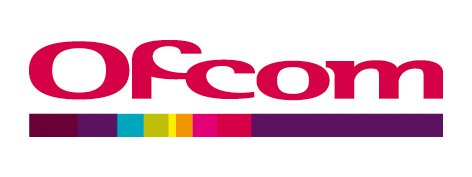
The recent transfer of Internet censorship powers from ATVOD to Ofcom has been trumpeted as a victory for free expression. It is anything but.
In 2009, the then opposition leader, David Cameron (who, we might remember, used to show vaguely liberal leanings), made a radical pledge: to break up the mighty super-regulator, Ofcom. As reported by the Guardian, he said:
“With a Conservative government, Ofcom as we know it will cease to exist. Its remit will be restricted to its narrow technical and enforcement roles. It will no longer play a role in making policy. And the policy-making functions it has today will be transferred back fully to the Department for Culture, Media and Sport.”
This was a very important pledge. Ofcom, a large organisation with an annual budget running into the hundreds of millions of pounds, also writes and enforces policy, particularly in the field of television censorship: something that, as Cameron had noticed, is surely the role of government rather than an unelected regulator.
Of course, once the coalition was elected in 2010, this pledge was never heard of again. Ofcom remained intact, and is alive and well to this day. Furthermore, as of 1st January this year, video-on-demand censorship powers were transferred from ATVOD to Ofcom.
When the demise of ATVOD was reported last year, there was much jubilation, especially among small UK porn producers. As probably the original anti-ATVOD campaigner (having been in some way involved with the new VoD regulations since 2007), I too did a little dance on ATVOD’s grave. ATVOD’s CEO, Pete Johnson, had proven to be an obsessive anti-porn activist, and he turned his organisation’s ‘regulatory activity’ into little more than a witch-hunt of British porn publishers.
But some of those involved trumpeted this move as some kind of victory for free expression. Anyone with experience of Ofcom would never make such a mistake. It is a grave threat to online free speech.
Ofcom is a typical New Labour creation: iron-fisted authoritarianism wrapped in a velvet glove of diversity and other fluffy things. Formed by merging multiple regulators into one monolith, it was granted powers of control over our daily lives. Its rules for television are moralistic and wide-ranging, and almost never challenged by our elected representatives. The 2009 version of David Cameron deserves at least a little kudos for even mentioning the problem.
Ofcom’s attitudes to pornography on TV make ATVOD’s prudish rules for VoD seem positively libertine. While online rules allow hardcore porn – at least up to the BBFC’s R18 standard – Ofcom totally banned all explicit sex acts from TV. This applies even to PIN-protected adult channels broadcasting at 3am. In the name of child protection, British adults are banned from watching porn on TV: almost all other EU countries and the ‘prudish’ US allow hardcore porn to be broadcast – many in the middle of the day.
But even the BBFC’s 18 standard for soft porn is too much for the moralists at Ofcom, who have created their own, even softer standard of decency, which is prudish to the point of comedy.
Empowered by the Broadcast Act (2003), Ofcom doesn’t just write law: it is judge, jury and executioner. Tiny breaches of its code can result in fines of tens of thousands of pounds – in fact, it can impose fines of up to £250,000. And it also has the power to order TV channels to close, and even to ban companies from operating TV channels.
Playboy TV, for example, fell foul of Ofcom rules numerous times. Having been fined £25,000 in 2004, it was fined £22,500 in 2008 for broadcasting content that ‘included sequences depicting masturbation, oral sex (both between women and between men and women), clear labial detail, sexual intercourse, and full nudity. Some also included strong language, such as “fuck” and its derivatives and “cunt”, in an overtly sexual context.’
Yes folks, a massive, unelected, publicly-funded organisation issues huge fines to porn businesses that allow adults to see ‘clear labial detail’, on an encrypted TV channel in the middle of the night.
With the convergence of TV and the Internet, Ofcom was always going to make a grab for Internet censorship powers. The closure of ATVOD may have made us all smile, but it fits in with Ofcom’s strategic interests. In fact, ATVOD only existed for temporary convenience, the result of a pretence at co-regulation between government and industry (ATVOD was once a genuine trade association, but was hijacked and turned into a censorship body in 2010).
The current consultation on further Internet censorship powers for Ofcom is ominous indeed. It is clearly an exercise in box-checking before the government inevitably decides that the UK, alone in the democratic world, needs more Internet censorship to protect our under-18s (and purely by accident, protect adults too) from sexual expression. There is little chance that the old, liberal Cameron will leap to our rescue. Internet censorship is on the short-term agenda: the transfer of power from ATVOD to Ofcom was not a victory for free speech, but a signal that state censorship of the Internet is getting serious.
Nick Cowen is a PhD student, who has recently published an academic paper on Millian Liberalism and Extreme
Pornography. In this, he argues that apparently ‘liberal’ justifications for banning ‘extreme porn’ in the UK are misguided. The Sex & Censorship campaign agrees: trying to justify censorship from a liberal perspective is a contradiction in terms. Below, Nick explains his argument in brief. His full paper can be downloaded here.
In August 2012, Simon Walsh, a prominent lawyer and former aide to London mayor Boris Johnson, was prosecuted for possession of ‘extreme pornography’. The alleged crime was possessing digital photographs depicting ‘fisting’ and ‘urethral sounding’ taken at a private all-male sex party where Walsh was a participant.
The prosecution claimed that the acts depicted were extreme because they could cause serious harm. The jury heard expert evidence from a surgeon that the acts, which are relatively commonly practiced within the LGBT community, could be conducted safely. It took the jury just a few minutes of deliberation to reject all charges.
Despite the ‘not guilty’ verdict, the trial came at personal cost to Walsh. Intimate details of his sex life were exposed in a public forum. Moreover, the Crown Prosecution Service continues to argue that the grounds for prosecution were sound and that the images were ‘extreme’, leaving open the possibility of continued prosecutions. This suggests a particular legal vulnerability for gay men and other sexual minorities. This is a perverse result for a law that was originally intended to address violence against women.
The British government banned extreme pornography in 2008. There are now more than 1000 prosecutions a year in the United Kingdom. We know comparatively little about the circumstances of most cases, possibly because, unlike Walsh, most defendants accept a sanction to avoid public attention and the greater risk of a prison sentence.
Prosecution statistics indicate that many cases involve depictions of bestiality. While bestiality raises real concerns with animal cruelty, many images may amount to harmless (if poor taste) jokes. For example, one failed prosecution in Wales involved possession of an image of a man having sex with a woman while wearing a tiger costume.
I argue that this approach to regulating pornography is disproportionate to any notional public benefit, and cannot plausibly protect women’s interests or improve their social status. My article highlights some illiberal aspects of the ban. First, ‘extreme’ is defined in terms of what the image appears to depict, rather than any actual harm done in creating the image. This means that records of acts safely performed by consenting adults can nevertheless be criminalised. Second, the law bans possession, not publication. This means that the law respects no boundary between private and public, and does not consider the context in which an image is found or displayed.
These features would have a strong chance of rendering such a ban unconstitutional on first amendment grounds if the law were passed in the United States. It is somewhat less clear whether it infringes European human rights law. Regardless of where positive law stands, I argue that liberal defences of privacy and free expression extend to extreme pornography.
I argue instead that images used to expose or harass individuals (or ‘revenge porn’) are legitimately prohibited. On my account, consent to view or be depicted should be the key test of legality, a test that the current definition of ‘extreme pornography’ sadly ignores.
Nick Cowen is a PhD student in political economy at King’s College London and a volunteer policy researcher for Backlash
Here’s a slightly strange announcement from HMRC: they’ve formed an ‘adult entertainment taskforce’ to clamp down on evasion by people in the adult industries. On the surface, this is reasonable. One can assume that some sex workers, especially those part-time/lifestyle ones, may not be declaring their full incomes, and this could provide valuable extra tax revenue. People should pay their taxes, regardless of how they earn their money, simple.
But there’s something just a little odd about this, especially in light of the moralistic climate that reigns right now. For example, the article estimates the size of the industry at a whopping £5 billion, which should yield BIG returns, but says HMRC have set an initial target to collect a miniscule £2.5m.
I’m somewhat cynical. Is this a new excuse to carry out raids on legal businesses that upset prudes? The Soho brothel raids of two years ago were done under the banner of ‘rescuing trafficked women’, but were in fact a cover to find (and deport) illegal immigrants, look for drugs, and clear prime property for redevelopment.
I’ll be on BBC Radio 5 Live this afternoon around 17:45 to discuss.
Source: HMRC adult entertainment taskforce to get to the bottom of tax fraud
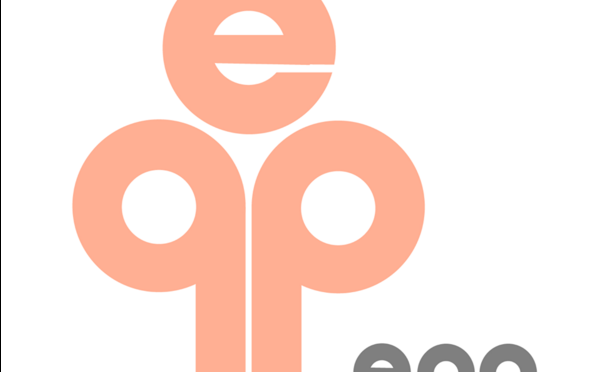
Nichi Hodgson is a journalist and founder of the Ethical Porn Partnership. Here, she outlines her goals in launching the EPP and appeals for volunteers to help her take the project forward.
The Ethical Porn Partnership is a collective of conscientious pornographers, performers and viewers who want porn made to a certain ethical code. The EPP wants to start a progressive conversation about how we reshape the industry into one that reveres healthy bodies and minds, while prioritising free sexual expression. The EPP also wants to ensure consumer confidence in a product that is so readily available yet little understood.
The project takes its inspiration, in part, from the Fairtrade movement. While there are obviously many brilliant companies working to a responsible business model, there’s no one, single industry-wide standard being practised by them. This makes it confusing for performers to know what’s expected of them from set to set. It dilutes the concept of ethical porn. And for the viewer, it makes the idea of picking porn clips ‘responsibly’ seem like an impossible – and futile – task.
Of course, there are already rules about age verification and health testing. But the viewers have no idea about what these are. We want the EPP site to feature information about these, and the other values of our proposed code which include transparency around pay rates, clear and accurate labelling of the content, and consensual and explicit conversation about what acts are to be performed before the cameras start rolling. At the moment, we are fine-tuning the code, available by email from [email protected], and invite anyone in the industry with opinions on it to feed back to us. The agreed code will then be displayed on our website, and we can start creating the actual ‘stamp’. We also intend in having a Board of Expert Directors who will help to steer the project.
This partnership project certainly isn’t about teaching the industry to suck their Tenga eggs. Rather, it’s about highlighting the good practice already going on within the industry, about making that explicit to an increasingly anxious viewership, and about showcasing those who strive to make high quality, innovative content that prioritises its performers’ pleasure and comfort. Women are porn’s future viewers but many of them still need convincing that the females they see on-screen really are enjoying themselves in a consensual, body and mind safe way. EPP provides the perfect opportunity for the adult industry to reassure its new and potential female consumers that this is the case.
As well as the code and stamp, the EPP site aims to contain behind the scenes videos, explanations, debriefs, and revelations; a blog on which to share ideas about what makes for great porn, and an open debate forum where viewers can ask questions about how what they love to watch is made. EPP also aims to raise money for anti-sexual violence initiatives and better sex education.
As such, we’re looking for more volunteers to help us build out our site – and our dream. So whether you have social media skills, web editing, writing, or canvassing ability, we’d love to hear from you. If you have plentiful industry experience, business experience, medical insight or some other professional experience that would like to bring to our board, please get in touch. Visit www.ethicalpornorg for more information or email [email protected]
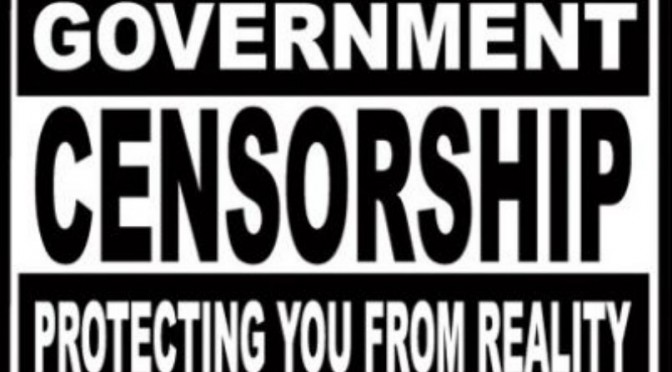
Last December, a law – known as AVMS 2014 – was snuck into force without a parliamentary debate. This law had two aspects: one of which was largely ignored. The part that wasn’t ignored criminalised the distribution of porn stronger than the BBFC’s tame R18 classification. This effectively outlawed the depiction of acts considered beyond-the-pale by the British establishment, even though these acts are perfectly legal to carry out in private, and provoked the memorable face-sitting protest outside Parliament.
The aspect of AVMS 2014 that the coverage largely overlooked related to age verification, making it mandatory for adult video providers to confirm that each visitor is over 18 before allowing them to see any form of explicit image or video. Arguably, this part of the law was far more significant, but on the surface seemed more reasonable. This regulation has actually been enforced by ATVOD since 2010: the 2014 law merely strengthened the existing rules.
But demanding age verification by adult service providers has far deeper implications than might be immediately obvious, and ones that inevitably have implications for the existence of an uncensored Internet.
The first problem is that, whatever the means of age verification, there will be adults that cannot get through it. Current age verification solutions include: using a credit card; providing passport or driving license details; using a mobile phone that has already been age-verified. But many adults cannot provide any of these things, and furthermore many wouldn’t want to, for privacy reasons.
Unfortunately, the UK has no strong protection against censorship, but the US does: and in America, the Supreme Court has ruled repeatedly that onerous age verification is undoubtedly censorship, so cannot be enforced by the state. So in “conservative” America, the legal system has far more problem with adults being prevented from watching porn than in “protecting children” from seeing it. The greater harm (according to the judges) is censorship, not smut: this is as America’s founding fathers intended, as they knew that censorship can be introduced for all manner of spurious reasons, and once initiated, it tends to grow.
The AVMS regulations are laid down by the EU. But here’s the odd part: only the UK has decided that AVMS requires an expensive, activist regulator along ATVOD lines; only the UK has interpreted the AVMS scope to include adult websites (the regulations were originally designed to cover TV catch-up services); and only the UK has interpreted the regulations to mean that adult websites should implement age verification.
Here’s the real, huge problem with all this. How can regulations that only cover UK-based web businesses have any meaningful effect? There are two possible interpretations: either, that ATVOD is an expensive but powerless quango, or that the government will introduce blocking of overseas adult websites on a mass scale.
Until recently, the latter option sounded like a conspiracy theory, but during the general election campaign, the Tories announced they would be blocking sites that don’t conform to AVMS. This would require the creation of an official UK Internet censor – the first such thing in any democratic society – and probably entail the blocking of millions of sites that are considered unsuitable for children.
Aside from censorship, privacy is the other major concern. Age verification providers will know which sites each user is trying to access. Is it acceptable and necessary that one’s credit card provider, mobile provider or other authority could know you tried to access BustySpankedSluts.com last Friday night?
Evangelists for age verification suggest that this problem could be averted by the creation of an “anonymising hub”. This would shield the adult site and the age verification service from each other, so that the site operator need not know your mobile number, and O2 will never know you had a wank to BustySpankedSluts.com.
But potentially, the hub multiplies the privacy issue. Now, there is a central database linking individuals to porn sites. Who would have the right to access, browse and search the database? Would the police ever have reason to request to access it? Would some alliance of hackers steal and publish data, just to prove they could, or use it for blackmail? Once this data is stored in a single place, the privacy implications are astounding.
ATVOD sets the age limit for accessing pornography at 18: it therefore defines 16 and 17 year olds as children, despite the age of consent being 16 in the UK. This means that debit cards can’t be used for age verification, as they can be issued to 16 year olds, and so makes age verification more onerous (many adults don’t own credit cards).
It’s worth a reminder at this point that the AVMS restrictions are predicated on stopping minors from viewing content that “might seriously impair” them. And yet, research carried out by Ofcom on behalf of the UK government, as well as research carried out across the European Union, is unanimous: no evidence can be found that pornography is capable of “seriously impairing”, and in fact the government’s own evidence suggests that pornography is associated with a reduction in harm. (Ofcom report – key finding is bottom page 15/top page 16).
All of this overlooks a simple fact: child protection filters are standard these days on all devices, from tablets and phones to PCs. Family brands like Tesco – which have reputations to maintain – sell their own child-friendly tablets. But such filters don’t empower or enrich regulators. Nor do they help make the case for censorship, or provide the opportunity to snoop on citizens, so they are ignored when the case for age verification is made.
While most EU authorities have thus concluded that there is no need for server-side age verification, Ofcom, ATVOD and the Department of Culture, Media and Sport have decided otherwise, and have implemented a “precautionary” system. This seems akin to fitting expensive locks to all fridges, in order to prevent teenagers freezing to death in the kitchen: it’s never happened, but you can’t prove it never will, can you?
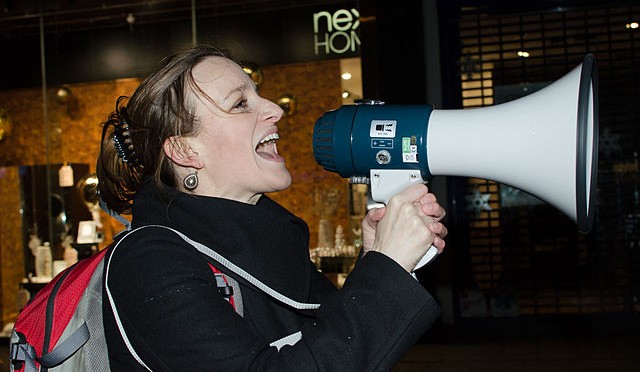
This Tuesday I appeared on a panel at the National Theatre to debate pornography and its cultural impacts. Joining me in the red corner was the feminist porn producer and performer Pandora Blake. In the blue corner were Heather Brunskell-Evans of Resist Porn Culture (an apparently new anti-porn group; don’t we have enough?) and Kate Smurthwaite, the comedian, writer and anti-sex feminist activist.
It wasn’t the easiest of debates; not because of the subject matter, but because of some heckling from the anti-porn speakers and certain members of the audience (Pandora recognised at least one audience member from other events – there were clearly a number of activists in attendance). This gives reassurance: when one has evidence and reason on one’s side, heckling is unnecessary.
Of course, nobody ever admits they’re anti-sex, for obvious reasons: if you’re trying to get people on-board with an anti-porn message, looking like a fundamentalist doesn’t help your cause. So when I chose to talk about the anti-sex, rather than anti-porn movement, my choice of words was questioned. In attempting to answer (I was cut off more than once), I pointed out that Smurthwaite, appearing in an anti-porn guise at this event, is a supporter of a variety of other, puritanical causes. I had printed out a tweet of hers in preparation for the event; when I tried to read it, Smurthwaite shouted over me, and threatened to walk out if I read it (I backed down – which I regret, in hindsight).
So here is the tweet which Smurthwaite (@Cruella1) was so determined should not be heard:

@gingerrobbers is a stripper, and as I interpret the above, Smurthwaite is blaming her choice of career for women being raped.
This is, of course, a disgusting thing to say, and surprising from a feminist, since it blames rape on women’s behaviour, rather than on rapists. It’s also a lie: there is no evidence that strip clubs and other forms of sexual expression cause men to commit rape.
Blaming sexual expression (and thus, women who undress in public) for rape has always been a feature of anti-sex feminism. Catharine Mackinnon, an American pioneer of anti-sex feminism, actually went so far as to suggest that a rapist/murderer should be freed, and instead the porn industry put on trial, because he had watched porn prior to committing the crime, and so was not responsible for his actions.
It also demonstrates that the ‘anti-porn’ label is misleading. I have never encountered an anti-porn feminist who is not also anti-striptease, anti-prostitution, or anti-sexual expression that goes far beyond what most people would consider pornographic.
It is for this reason that the anti-sex campaigner Gail Dines coined the term ‘pornification’, which is popular today in the anti-sex movement. It is designed to imply that all sexual expression, however soft, is somehow pornographic in origin and intent, and so proof of the insidious influence of porn across our culture. Thus, Beyoncé music videos, Page 3 of the Sun, sun cream adverts and lads’ mags are all examples of ‘pornification’… created by the river, the torrent, the TSUNAMI of filth that (they say) bombards us on a daily basis.
So if a person attacks every possible known instance of sexual expression as harmful and dangerous, how could they not be anti-sex? I have always wanted to ask Dines, Smurthwaite and their colleagues in the Porn Panic industry to explain what expression of sexuality they would find acceptable; perhaps a Ministry of Smurthwaite could be established to approve erotica that – according to the puritans – does not demean, degrade, objectify or otherwise ‘harm’ women. One suspects it would be a small, sad and sexless library of content.
So I don’t apologise for referring to such types as anti-sex rather than simply anti-porn. I use the term with care.